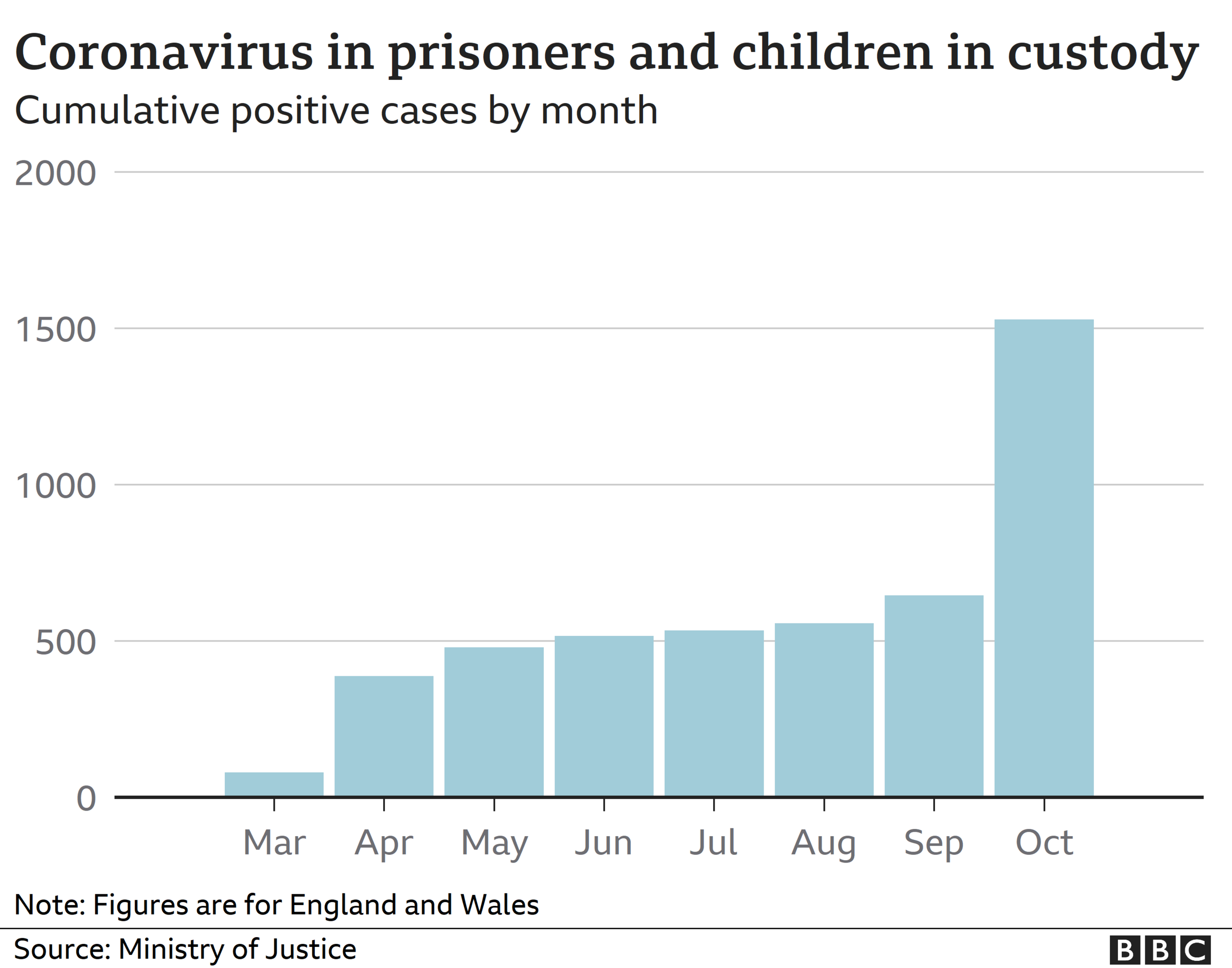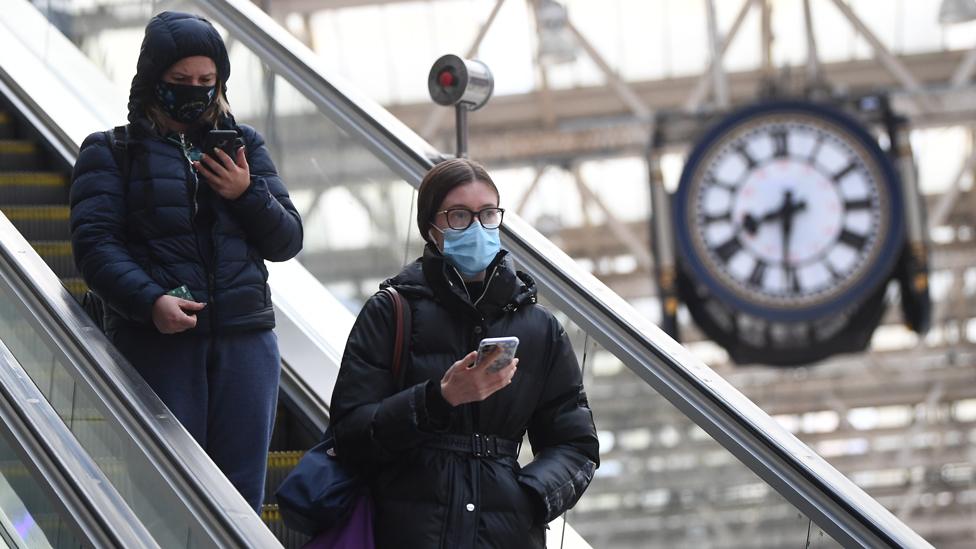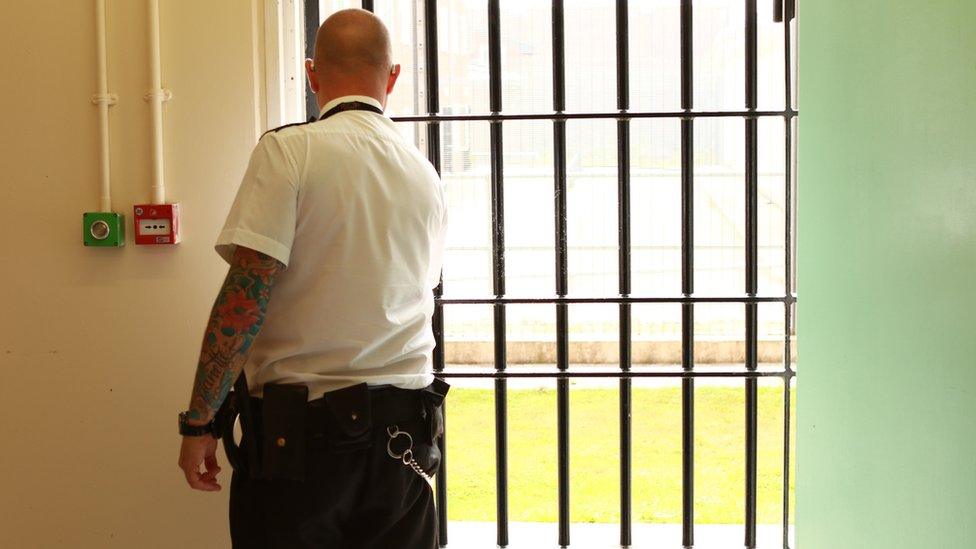Covid: More prison cases in October than previous seven months
- Published

HMP Leeds reported a Covid-19 outbreak in October which saw 32 staff and five inmates test positive
More prisoners in England and Wales had coronavirus in October than in the previous seven months of the pandemic combined, official figures have shown.
The surge highlighted the "vulnerability" of facilities to the pandemic, the Prison Reform Trust said.
Up to 31 October, 1,529 prisoners or children in custody had had coronavirus - roughly 2% of the jail population - with 883 of the cases during October.
The government said it was routinely testing frontline staff and offenders.
Peter Dawson, director of the Prison Reform Trust, said an increase of cases and deaths was "always a risk" once the spread of Covid-19 in the community started to rise.
He said managing the spread of the virus remained "especially challenging" in prisons and the government needed to "use all the tools available to keep people safe".
"That should include the currently discontinued option of conditional early release for low risk prisoners, and a brake on less serious offences resulting in a prison sentence in the first place," he added.
The government paused the early release of low risk offenders, which had been introduced in April to help stop the spread of the pandemic in prisons, at the end of August, external.

Between 30 September and 31 October, the total number of coronavirus cases across England and Wales increased by more than 500,000.
Compared with the October increase in cases across 315 English local authorities, the prison population saw the equivalent of the 62nd highest rise per 10,000 population, similar to levels seen in areas such as York and Leicester.
Throughout the pandemic so far 32 prisoners and 23 people using the probation service have died after testing positive for coronavirus.
In October, the chief inspector of prisons, Peter Clarke, told BBC Newsnight the practice of locking inmates in cells for 23 hours a day - to reduce the spread of coronavirus - was causing prisoners to "lose hope".
A Ministry of Justice spokeswoman said the prison service was now "routinely testing frontline staff and offenders" to more quickly identify and contain outbreaks.
"This, alongside the measures we have put in place since March, will ensure we continue to limit the spread of the virus and save lives," she added.
- Published13 November 2020

- Published9 November 2020

- Published1 November 2020

- Published20 October 2020
